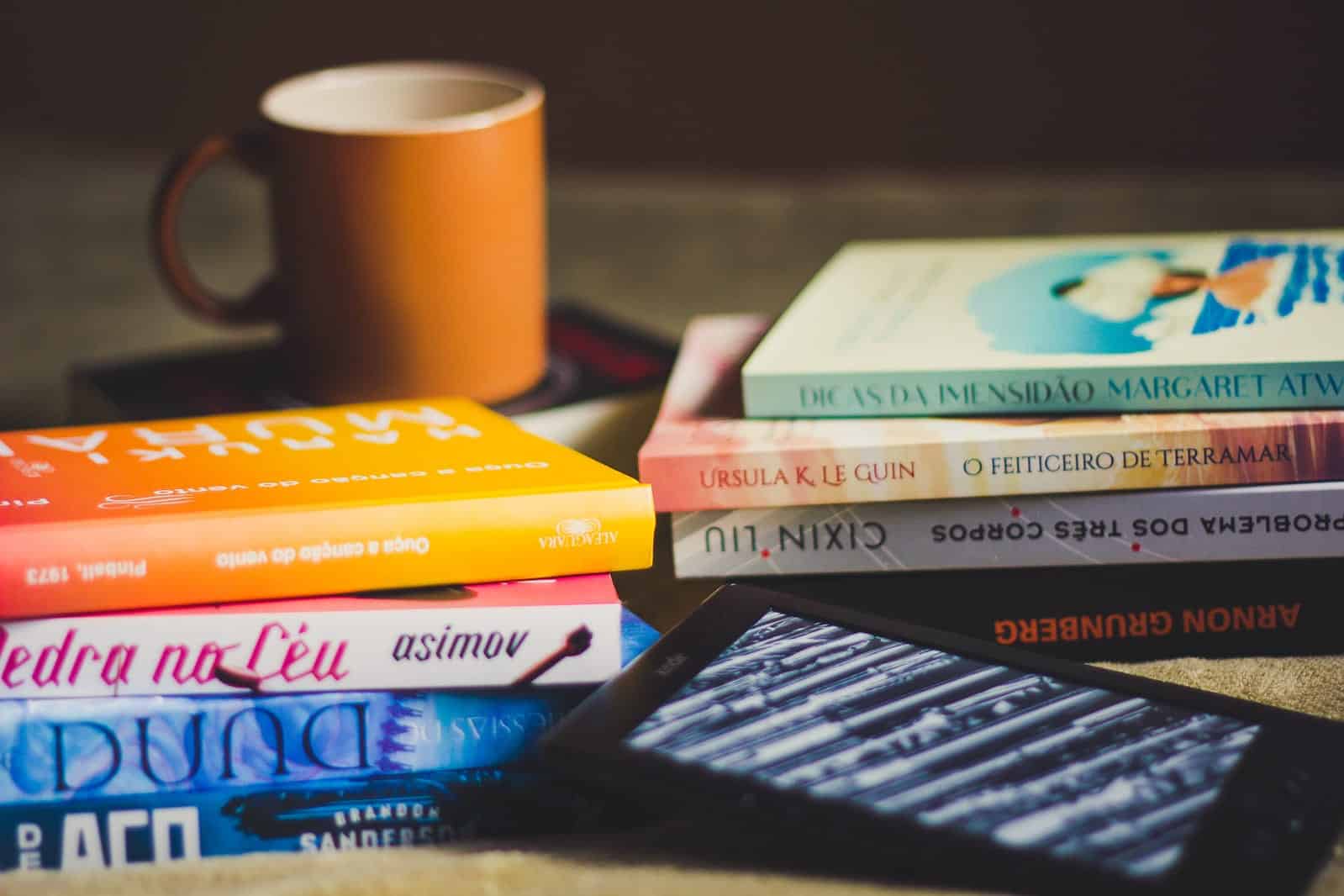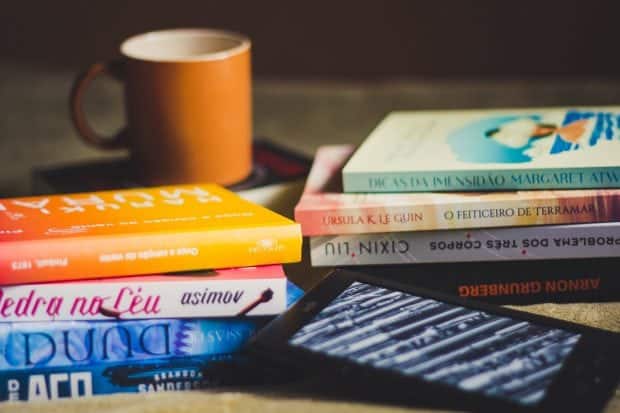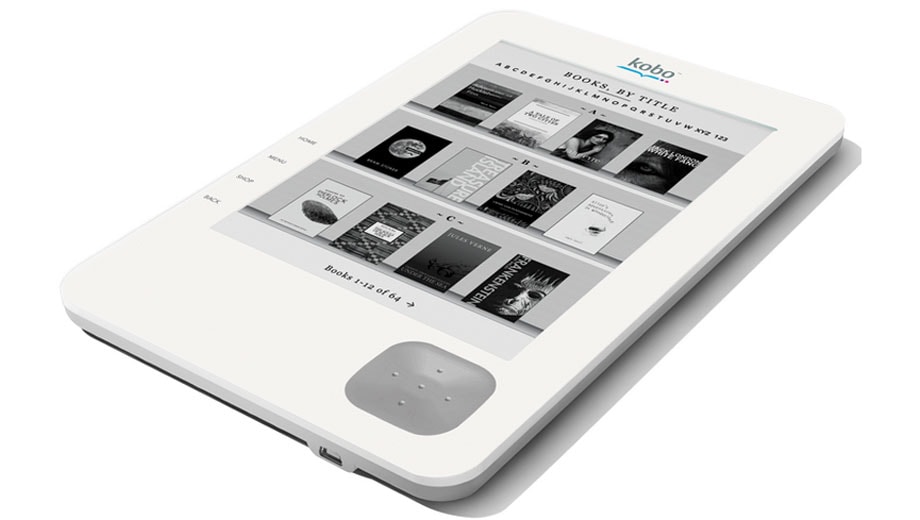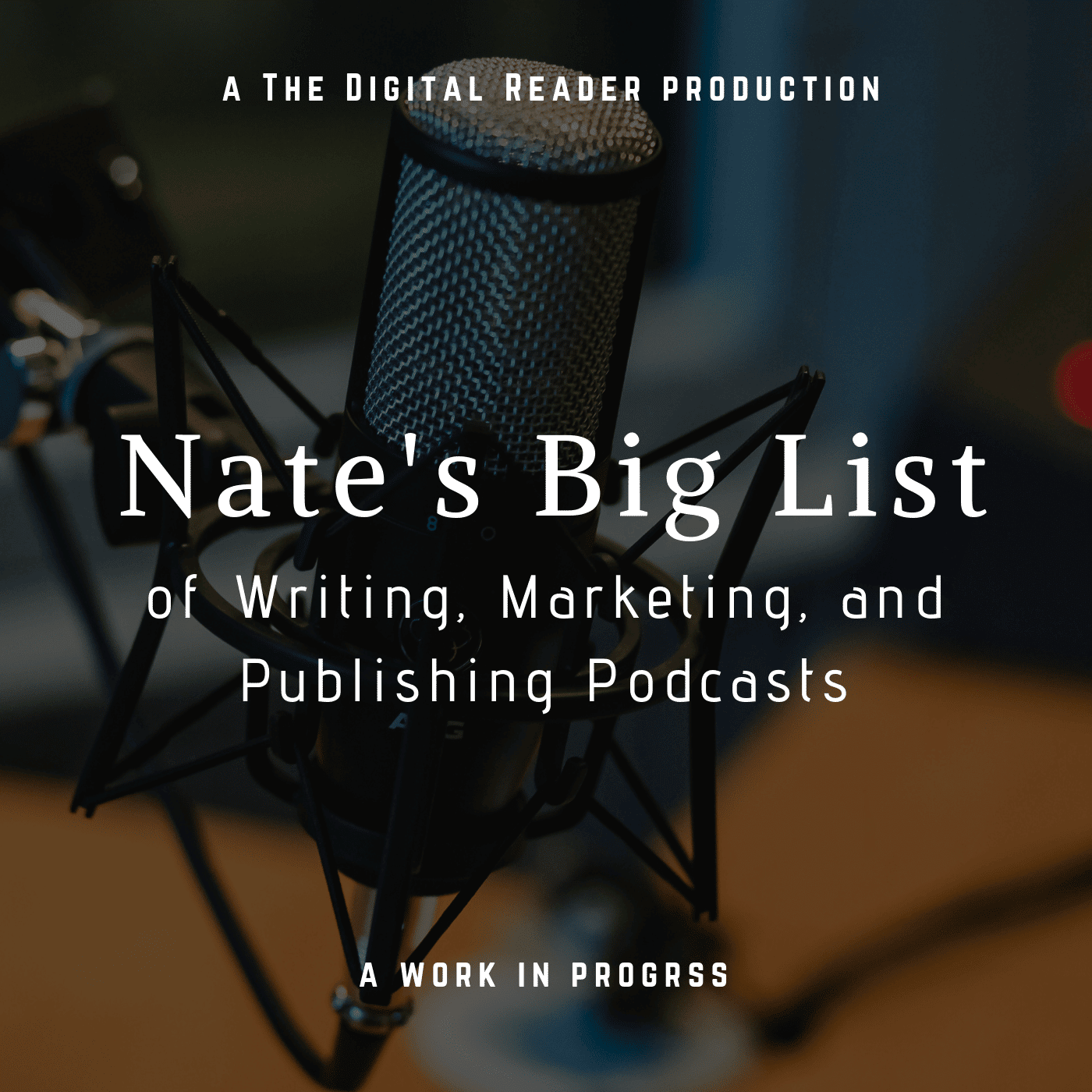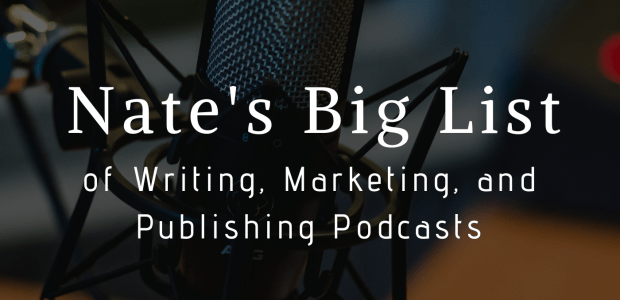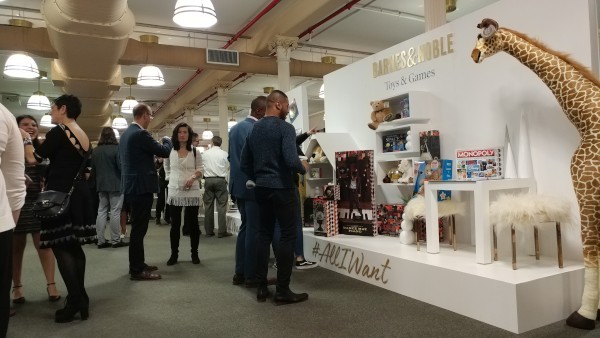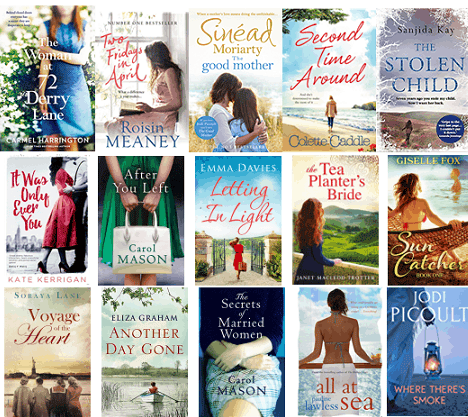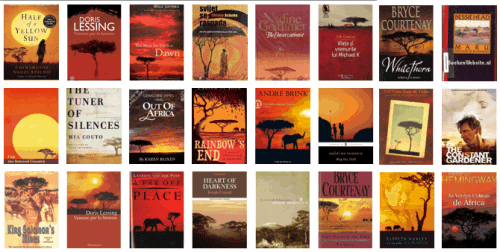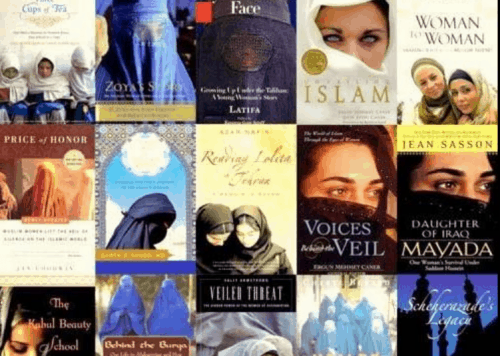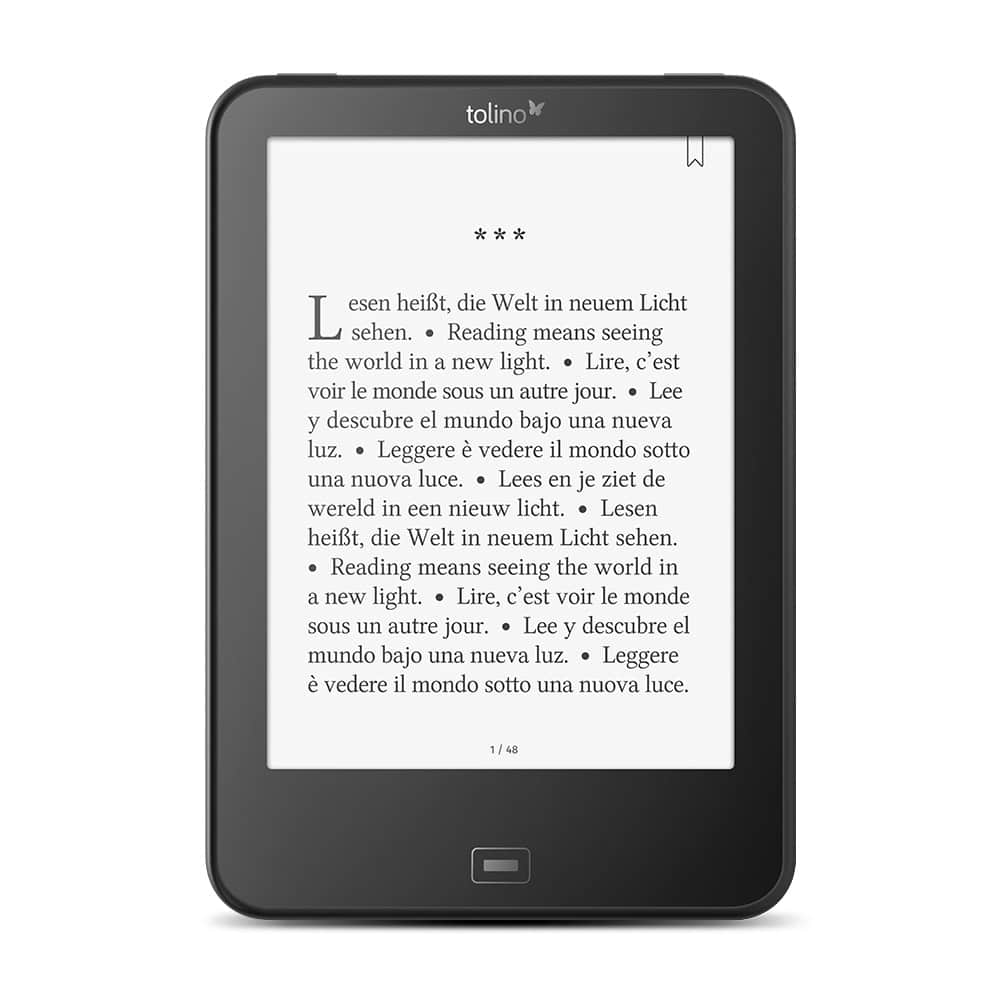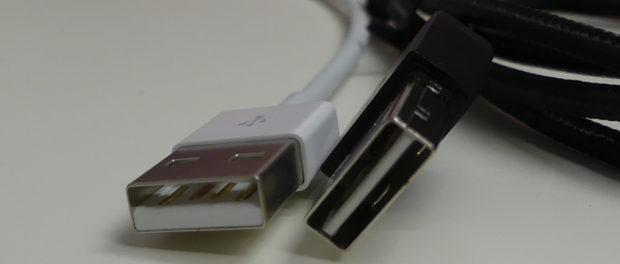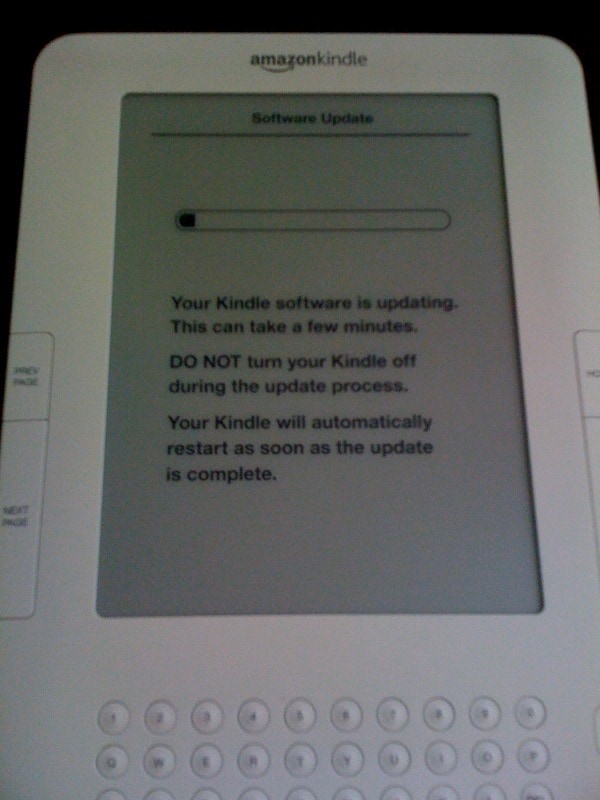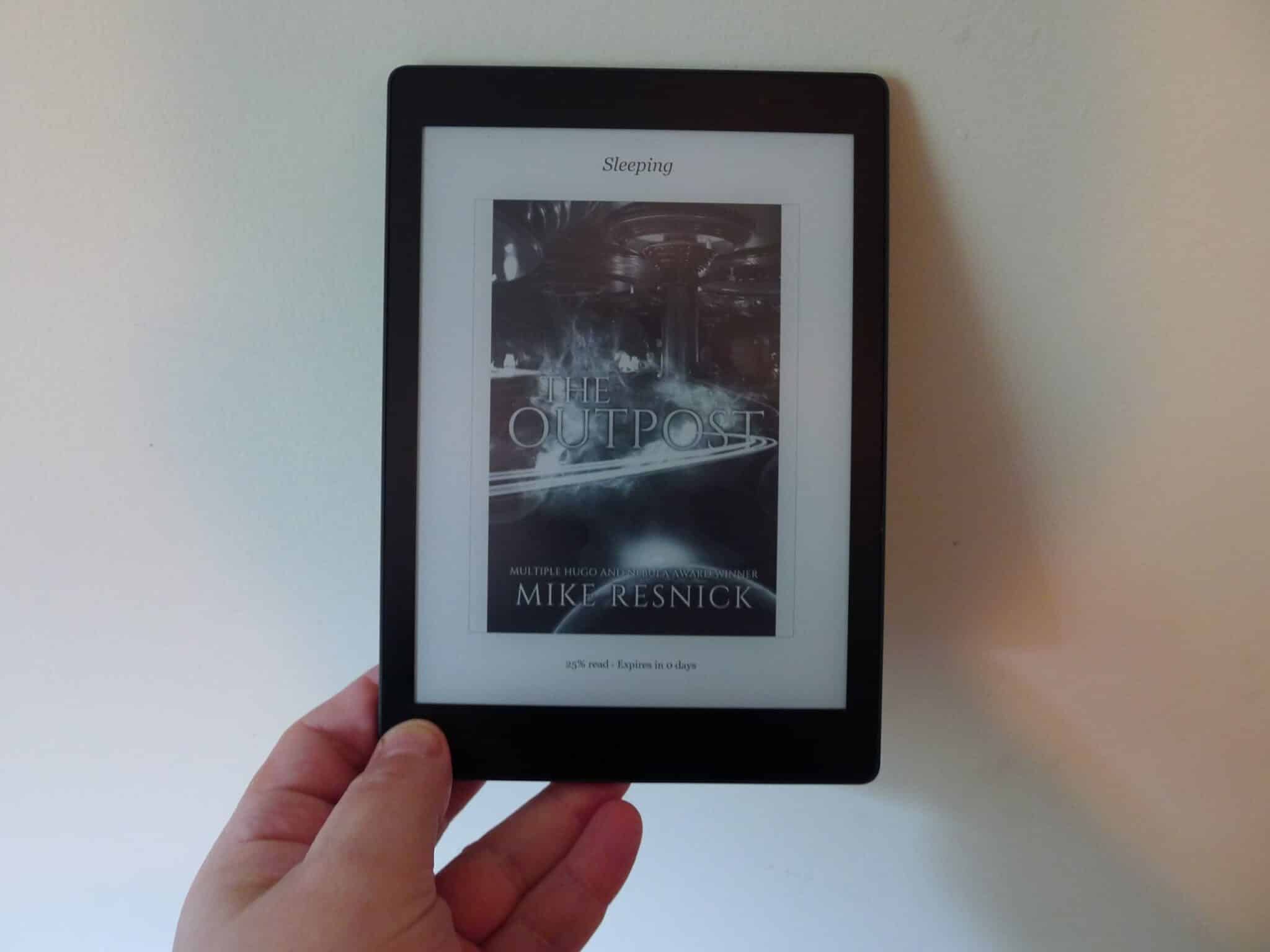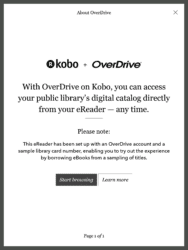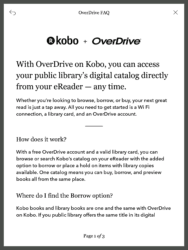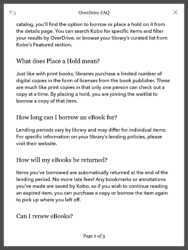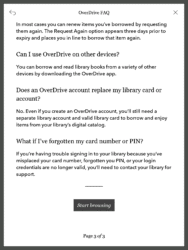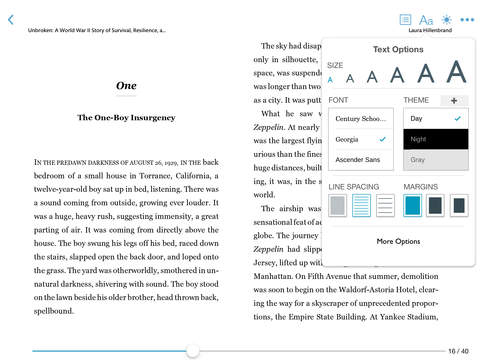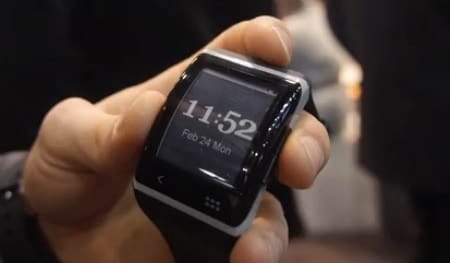Baptismal sayings are read aloud or presented as a gift for a child’s baptism. Like the godparents, they should accompany the child throughout his life. We can help you to choose the right verse to write beautiful congratulations for a child’s christening.
Your search for night reading mode got 80 results
Of course, it would be lovely if we could always be completely at peace within ourselves, but unfortunately, that is usually not the reality. Here are some tips and exercises to help you get a whole lot closer to serenity and leave your inner restlessness behind.
Today, Amazon announced its selections for the Best Books of 2019, naming Margaret Atwood’s The Testaments – the sequel to her dystopian masterpiece The Handmaid’s Tale – the Best Book of 2019.
The annual list features the Top 100 books of the year plus Top 20 lists across various categories ranging from literary fiction, mystery and thriller, biography, children’s and young adult, making it the go-to list for holiday reading and gift giving. All lists are hand-selected by Amazon’s team of editors – first by choosing the best books of every month, and then, finally, the best books of the year. To explore the full list of the Best Books of 2019 and buy the print, Kindle or Audible editions, visit: amazon.com/bestbooks2019
Here are Amazon’s Top 10 picks of 2019:
- The Testaments by Margaret Atwood: Praise be! After almost 35 years, Margaret Atwood released the sequel to her pioneering work of speculative fiction, The Handmaid’s Tale, and it is well worth the wait. While The Handmaid’s Tale explored how totalitarian regimes come to power, The Testaments delves into how they begin to fracture. At 80 years young, Atwood is at the top of her game.
- The Nickel Boys: A Novel by Colson Whitehead: Having earned a Pulitzer and a National Book Award with his last novel, The Underground Railroad, Colson Whitehead follows up with a story about two young black men sent to the infamous Nickel Academy in Florida. Set during the 1960s Jim Crow era, the story follows Elwood and Turner who, despite different backgrounds and world views, learn to lean on one another to survive.
- Wild Game by Adrienne Brodeur: The subtitle seems to say it all: My Mother, Her Lover, and Me. And yet there is so much more to the story. Adrienne Brodeur was fourteen when her mother started secretly dating Ben Souther. What developed after that was a strange, uncomfortable, impossible-to-look-away-from triangle in which young Adrienne became cover for the trysts between her mother and Ben. This is an engaging and at times breathless memoir that builds with anticipation and continues to unfold with observations and revelations.
- Quichotte: A Novel by Salman Rushdie: An exquisite satire on the world we live in, Rushdie’s latest novel pays Cervantes a great, clever compliment with this deliciously funny Don Quixote for modern times. An unusual romantic quest kicks off a road trip across America in an age that would be utterly surreal if we weren’t actually living it. An antidote to fear, bursting with intelligence and wit—Quichotte is exactly what so many of us need right now.
- The Starless Sea by Erin Morgenstern: Almost ten years after she wrote The Night Circus, Morgenstern offers readers a shape-shifting, time-bending, otherworldly adventure of storytelling, where pirates lurk and doors lead forward and backward in time, where crowded ballrooms collapse into oceans, and where a young man must piece together the clues to uncover and protect his own life’s story. This magnificent tribute to tales of the imagination is absolutely magical.
- Super Pumped: The Battle for Uber by Mike Isaac: Super Pumped is a masterful and highly entertaining work of investigative journalism into the evolution of Uber and its maverick founder Travis Kalanick. Perfect for readers who were captivated by Bad Blood, Mike Isaac’s Super Pumped provides an insider’s view of the stunning highs and catastrophic lows of the company that changed the way we use transportation.
- City of Girls: A Novel by Elizabeth Gilbert: It’s the 1940s, and the frivolous and fun-loving Vivian Morris arrives in New York with the goal of “becoming someone interesting”—and in short order she is, but for all the wrong reasons. The latest novel by the author of Eat, Pray, Love is bawdy, bighearted, and wise.
- They Called Us Enemy by George Takei, Justin Eisinger, Steven Scott, and Harmony Becker: George Takei’s vivid graphic memoir reveals the story of his family’s incarceration during the internment of Japanese Americans during World War II, beginning when Takei was only five years old. Even as the memories depicted range from unsettling to infuriating, They Called Us Enemy inspires readers to insist that our country treats fellow human beings with fairness and dignity.
- The Silent Patient by Alex Michaelides: In this psychological thriller, a couple seems to have it all until the wife is convicted of shooting her husband in the face. But she will say nothing about the crime—or anything else, for that matter. After a criminal psychologist obsessed with the case comes on the scene, dark twists and delightful turns follow, secrets (and a diary) are revealed, and you will likely find yourself racing to the end of this year’s must-read thriller.
- Maybe You Should Talk to Someone by Lori Gottlieb: What happens when a celebrated psychotherapist finds herself on the other side of the couch? Maybe You Should Talk to Someone is an entertaining, relatable, moving homage to therapy—and just being human.
The top pick in the children’s category is the middle grade novel:
- Dear Sweet Pea by Julie Murphy: Bestselling author Julie Murphy makes her middle-grade debut with a smart, funny novel that tween readers will quickly embrace. Patricia “Sweet Pea” DiMarco is a seventh grader dealing with a wide range of emotions and change, including recently divorced parents and friendships in transition. Dear Sweet Pea is a warmhearted read that is at once reassuring, wise, and utterly relatable.
image by FaruSantos via Flickr
Kobo started cleaning house last night, and one of the affected ereaders is the eight-year-old Kobo Wifi. (Kobo also ended support for the Sony Reader.)
Kobo Wifi owners got an email last night, informing them that Kobo no longer supported this model. Much to my surprise, I owned one at one point, so I got the email:
We have important news for you regarding your Kobo Wifi.
Part of our commitment to providing the best possible reading experience means keeping up with the latest advances in eReader technology and internet security protocols. With this in mind, we will need to discontinue support for some of our earliest products.
As of February 28, the Kobo Wifi will no longer be supported by Rakuten Kobo*. This means it will no longer receive software updates, and will not be able to connect to the Kobo eBookstore. We apologize for any inconvenience this may cause.
Rest assured that no items in your Kobo library will be affected; you will continue to have access to all reading material you have purchased or downloaded from Rakuten Kobo.
Read with Kobo with the free Kobo App
You can download the free Kobo App available for iOS and Android smartphones and tablets, and read with Kobo on a device you already own.Kobo is a company built by booklovers for booklovers, and we will continue to expand on our reading experience, offering you cutting-edge eReaders, easy-to-use reading apps, and reading recommendations chosen just for you.
To see if any of your other Kobo products are affected, visit Kobo Help.
If you have any questions or concerns about this message, please contact Kobo Customer Care.
While the Kobo Wifi will no longer be able to purchase ebooks directly from the Kobo Store, Kobo Wifi owners can still use Adobe Digital Editions to sideload their own ebooks.
The Kobo Wifi was Kobo’s second ereader. It was a rebranded stock design from Netronix running Kobo software. Kobo also customized the hardware case, giving it a very pleasant soft case.
What do you call a group of 3 or more adults under 40? (a podcast)
Podcasts are now so widespread that they inspired me to write the above joke, but that prevalence is also a curse. There are so many podcasts in production right now that it can be difficult to find one with a focus on the topics that interest you.
With that in mind, over the last month I have been looking for podcasts that cover book publishing. I have so far found ten nineteen podcasts, and gathered them into the following list. (Fun fact: I have been a guest on two of the podcasts, and have also been mentioned on at least five of them.)
This has been an interesting project for me because it helped me refine my thinking on podcasts. As I see it, there are two ways to classify podcasts: industry and topic. The difference is that some podcasts cover a topic that applies to many industries, while others focus on several topics within a single industry.
Almost all of the podcasts listed below are industry podcasts, not topic podcasts. These are great podcasts, but one way topic podcasts may be better is they will introduce you to ideas from other industries, possibly inspiring out of the box solutions to your problems.
If you are looking for more podcasts to follow, that is worth keeping in mind.
Update: Over on Twitter Bonnie Loshbaugh tipped me to a list of romance-focused podcasts, and I have added three more podcasts to my list.
| Name | Host | Frequency | Details |
|---|---|---|---|
| Wordslinger | Kevin Tumlinson | 2 to 3 episodes per month | Kevin Tumlinson talks to authors and entrepreneurs to get their behind-the-scenes story. Tune in to a full hour of wisdom and insight from some of the most intriguing people on the planet. It’s all about the story here. |
| The Creative Penn | Joanna Penn | weekly | Information, inspiration and interviews on writing, self-publishing, book marketing, and making a living with your writing. |
| Sell More Books Show | Jim Kukral, Bryan Cohen | weekly | Authors, are you struggling to get the word out about your books? Discover the latest book marketing and self publishing news, tools and strategies. Every week you’ll get helpful tips and ideas to make your book sales soar. |
| Frontmatter | Len Epps | weekly | In the Frontmatter podcast authors talk about their careers and their areas of expertise, making it a general interest podcast covering everything authors write books about, from startups to biology to software development and the future of labor. |
| AskALLi | varies | weekly | The “AskALLi Self-Publishing Advice Broadcast" is a rotating series of four monthly podcasts crafted to help you cut through the noise to get only the most up-to-date and important self-publishing advice. |
| Self-Publishing Formula | Mark Dawson, James Blatch | weekly | Two writers. One just starting out. The other a best-selling indie author. Join James Blatch and Mark Dawson and their amazing guests as they discuss how you can make a living telling stories. There’s never been a better time to be a writer. |
| Hear Us Roar | Maggie Smith | weekly | Each Debut Author Podcast is a conversation between our moderator Maggie Smith and a debut women’s fiction author. |
| Rocky Mountain Writers | Mark Stevens | weekly | Interviews with members of Rocky Mountain Fiction Writers and those involved in RMFW conferences, workshops and other writing-related events. Rocky Mountain Fiction Writers is a non-profit, volunteer-run organization dedicated to supporting, encouraging, and educating writers seeking publication in commercial fiction. |
| Written on the Edge | Jayne Lockwood, SA “Baz” Collins, Vance Bastian | weekly | Tune in for weekly discussions about LGBTQ storytelling in all genres and mediums. Our guests share personal accounts on living the artistic life and their personal experiences writing, crafting, and reading stories that explore the edges of what’s accepted and where storytelling should be headed. |
| Self-Publishing Authors | Cheryl Phipps, Trudi Jaye, Shar Barratt, Wendy Vella | weekly | Cheryl Phipps, Trudi Jaye, Shar Barratt and Wendy Vella are four writers (romance & urban fantasy) from New Zealand who podcast weekly about self-publishing. Especially for those new or curious about self publishing, our podcast is full of full of tips, resources and honest tales from the trenches! |
| The Story Studio | Johny, Sean, Dave | weekly | Stories turn songs into symphonies, events into memories, and lives into legends. In our crowded world, “knowing your story” cuts through the noise so you can make your mark — whether you want to sell more books, increase profits, or just make a difference. At Sterling & Stone, Story is our business. The Story Studio Podcast is where we explore ways we can all tell our stories better. |
| Self-Publishing Journeys | Paul Teague | weekly | The Self Publishing Journeys podcast is a weekly show for all indie authors. Show host Paul Teague interviews self- published authors about their writing journeys, passing on hints, tips and tricks along the way. |
| So You Want to be a Writer | Valerie Khoo, Allison Tait | weekly | Valerie Khoo and Allison Tait, both successful journalists and authors, bring you the latest in news, opportunities, trends – and gossip – in the world of writing blogging and publishing. Whether you love the creative inspiration of Elizabeth Gilbert, the life-hacking non-fiction of Tim Ferriss or the phenomena that is JK Rowling, you’ll find it here. |
| The Worried Writer | Sarah Painter | monthly | Hear how bestselling authors such as Mark Edwards, Miranda Dickinson, C.L. Taylor, Mel Sherratt and Julie Cohen write, and follow their top tips for getting the work done. |
| The Authorpreneur | Amelia D. Hay | weekly (?) | The Authorpreneur Podcast is a virtual writing and business coach for fiction writers, hosted by Amelia D. Hay. The podcast will teach you how to develop a story idea, create compelling characters and outline your novel. Learn how to write your first draft, revise your story, self-publish, establish your author platform, and reach readers in less than fifteen minutes a day. Every week, Amelia releases a Behind the Scenes Podcast Diary (BTS) where she shares an honest account of her journey to self-publishing her novels. |
| Create If Writing | Kirsten Oliphant | weekly |
Kirsten Oliphant interviews experts to find out how they are building email lists, connecting through Twitter, and using Facebook groups. These practical episodes are balanced out with inspirational interviews from successful writers and bloggers who have made it big and want to share the struggles, the creative process, and tips for reaching your goals whether you are an author publishing books or creating an online presence through blogging. |
| The Bestseller Experiment | Mark Stay, Mark Desvaux | weekly | oin author and screenwriter Mark Stay with coach, entrepreneur and recording artist Mark Desvaux, as they discover the secrets to writing a bestseller and challenge themselves and you to write, market and self-published a bestselling book in just one year. Each week, they are guided by and interview million-selling, chart-topping authors, publishers on the inside, editors, agents, social media specialists, and many more big names who play a part in the bestseller process. From the writing to marketing, plotting to publishing, learn the secrets to help you write your way to the top of the charts. |
| Writing Excuses | varies | weekly | "Fifteen minutes long, because you’re in a hurry, and we’re not that smart." |
| Author Stories podcast | Hank Garner | weekly | AUTHOR INTERVIEWS, WRITING ADVICE, Several published per week. |
| Kobo Writing Life | varies | weekly | The Kobo Writing Life Podcast features exciting interviews with bestselling authors, tips on the craft and business of writing, and advice for successfully self-publishing. Millions of readers are waiting to discover your book – self-publish today at www.kobo.com/writinglife |
| OtherPPL | Brad Listi | weekly | OtherPPL features in-depth interviews with today’s leading authors, poets, and screenwriters. |
| Beautiful Writers Podcast | Linda Sivertsen | monthly | Each episode features an interview. Topics cover in-depth insights on the writing and publishing processes, from breakout successes to authors with staying power, featuring inspirational personal anecdotes, advice, and encouragement. |
| I Should Be Writing | Mur Lafferty | monthly | Tthis podcast focuses on providing encouragement, writing tips, and publishing advice to aspiring authors via success stories from authors releasing new books. The interviews focus on the goal of achieving traditional publication, so they only feature traditionally published authors. |
| The Manuscript Academy | Jessica Sinsheimer | biweekly | Features interviews with agents and editors, who share plenty of behind-the-scenes publishing insights. It’s part of #MSWL (Manuscript Wish List), which helps authors more effectively connect with agents and editors seeking projects like theirs, and includes plenty of query tips for authors looking to sign with an agent. |
| Helping Writers Become Authors | K.M. Weiland | weekly | HWBA covers a variety of topics on the craft of writing — from creating characters to outlining novels to polishing prose — as well as getting into the creative mindset, being productive, and writing mistakes to avoid. |
| SPA Girls Podcast | Cheryl Phipps, Shar Barratt, Trudi Jaye, and Wendy Vella | weekly | A weekly podcast on indie publishing tips, resources, advice, and real-life case studies. Some episodes dive deep into a specific topic, but most feature interviews with successful self-published authors or industry professionals. |
| Write or Die | Claribel Ortega | weekly | Often times in publishing we only hear about the quick sales and overnight successes – but for most of us, publishing is hard AF! This podcast shares those stories – the real, gritty, pull your hair out because it’s been years – stories of writers who didn’t give up despite it all, and are now living out their dream. |
| Print Run | Laura Zats, Erik Hane | weekly | This podcast’s aim is simple: to have the conversations surrounding the book and writing industries that too often are glossed over by conventional wisdom, institutional optimism, and false seriousness. |
| Shipping & Handling | Bridget Smith, Jennifer Udden | monthly | Join two literary agents as they discuss books, publishing, writing, fandom, and more! |
| The Creative Writers Toolbelt | Andrew Chamberlain | weekly | The Creative Writer’s Toolbelt gives practical, accessible that you can apply straight away to your own writing. Each episode explores an aspect of the craft, with examples. We also throw in occasional interviews with writers, editors, marketers and other artists. |
| JoinedUp Writing Podcast | Wayne Kelly | weekly | The Joined Up Writing Podcast is for writers and readers alike. It features loads of great interviews with authors, editors, publishers and anyone else who can help and inspire you on your Writing or Reading journey. Our main episodes feature long-form interviews packed with fascinating stories and insight. Our shorter ‘Epilogue’ shows are quick-hit ten minute episodes based on a bonus topic or question not included in the main interview. |
| Wine, Women, and Words | Diana Giovinazzo Tierney and Michele Leiva | weekly | A literary podcast that interviews authors over a glass of wine. We talk about their writing process, the books that we love and, of course, wine. |
| Go Publish Yourself | Robin Cutler and Justine Bylo | ??? | IngramSpark’s Director, Robin Cutler, and Manager of IngramSpark’s Author Acquisition Program, Justine Bylo, will be joined by experts throughout essential fields in the publishing industry to provide you with self-publishing resources in a new format. These short episodes are an easy way to gain quick insights for how to self-publish. |
| Stark Reflections | Mark Leslie Lefebvre | weekly | Perspectives and reflections on the writing and publishing life. Mark Leslie Lefebvre, a writer, bookseller, digital publishing advocate, professional speaker, and publishing consultant explores inclusive and collaborative opportunities for writers and book publishing professionals via interviews, discussions, and reflections about the industry. |
| DIY MFA Radio | Gabriela Pereira | weekly | If the DIY MFA website were a campus, the DIY MFA podcast would be the school’s radio station. Hosted by instigator Gabriela Pereira, this show emulates the traditional MFA speaker series where authors and industry experts speak to students about writing, but makes these conversations accessible to anyone with an internet connection. |
| The Career Author | J THorn, Hack Bohannan | weekly | The Career Author Podcast Becoming a full-time writer can be overwhelming. Join J. Thorn and Zach Bohannon as they help you improve your craft and find your audience, so you too can become…a career author. This is The Career Author Podcast. |
| The Fearless Storyteller | Ethan Freckleton | weekly | Join The Fearless Storyteller, as we explore the heart and soul of writing stories, songs, and scripts that sell—with the people who write them. Each guest has their own unique Hero’s Journey and insights into the intersections between limiting beliefs and success.
Weekly episodes feature interviews, inspiration, and insights for writers of any level. |
| Webcomics Reviews and Interviews | Jamais Jochim | weekly | WCRI is a webcomic podcast devoted to the creation and monetization of webcomics. There are how-to shows on how to create, draw, write, and market webcomics, as well as reviews on webcomics. There are also interview shows with creators, businessmen and others involved with webcomics. In short, if you want to create and make money from webcomics, this is where you start. Potential subjects can e-mail [email protected] to set up interviews. |
| (your podcast) | host s | frequency | details |
If you know of a podcast on writing, publishing, or book marketing which isn’t mentioned here, please fill out the form below.
[contact-form][contact-field label=’Podcast Name' type=’name' required=’1’/][contact-field label=’Podcast URL' type=’url' required=’1’/][contact-field label=’Host' type=’text’/][contact-field label=’Frequency' type=’text’/][contact-field label=’Your Email' type=’email’/][contact-field label=’Details' type=’textarea’/][/contact-form]With the Clara HD leaking yet again in advance of tomorrow’s announcement, the launch is now less breaking news than fait accompli.
I don’t know that I will be writing much about the Clara HD; aside from the color-changing frontlight, the Clara HD is a fairly ordinary looking 6″ ereader (it is essentially the Kobo Glo HD in a nicer shell and running newer software).
But I did have one thought I wanted to put out there, and see if anyone felt the same way.
It has to do with the frontlight.
Kobo was the first ereader maker to replace the white LEDs used in a frontlight with RGB LEDs. This feature showed up in the Aura One a couple years ago, and ever since then Kobo has been using the color LEDs to give its ereaders what is commonly known as a bluelight filter.
A bluelight filter is when the blue wavelengths of light emitted from a screen are lessened or disabled, leaving the screen looking some shade of reddish-orange (science says that it helps with your sleep when you use a gadget at night).
It’s a nice feature to have, but here’s the thing: Kobo could be doing so much more with RGB LEDs.
I’ve had a Clara HD for a couple weeks now, and in that time I have come to wish it had two additional features. I will tell you about the one feature tomorrow, and the second item on my wishlist is more color options for the frontlight.
The bluelight filter option is nice for those who use it, but I don’t care for the reddish-orange color. Instead, I want to use the frontlight to enhance the reading experience in ways that will both make users happier and make ereaders more accessible.
I think it would be great if users were able to set the frontlight so it has the same color as, say, the faded yellow page of an old paperback or the cream page found in a high-quality hardback. Furthermore, adding yellow as an option would help dyslexic readers. Research has shown that black text on a yellow background actually easier for dyslexic readers to comprehend.
All of these options – and more – are theoretically possible with the existing hardware if Kobo would only enable the software features to support them.
Kobo has not done so, and we don’t know why. It might be that no one inside Kobo wanted this feature enough to lobby for it, or it might not actually be possible with the current hardware.
I can’t do anything about the latter, but what I can do is show there is a desire for this feature.
I for one would use a cream color option on the frontlight if Kobo offered it.
How about you? What frontlight color would you like to use on your ereader?
When B&N’s holiday sales weren’t declining in the past five holiday seasons, they were flat, but that hasn’t stopped them from putting on a brave face last week.
The retailer unveiled its strategy for the upcoming holiday season at media event at its flagship store in Manhattan.
From PW:
At a media event at its Union Square store in Manhattan last week, Barnes & Noble unveiled its holiday gift guide and seasonal sales strategy. The push involves two new interactive apps, a new Nook model, unique editions of big books, and a streamlined approach to selling its toys, gifts, and other non-book items.
The big news on the Nook front was the Nook GlowLight 3, which B&N is retailing at $119.99. The screen is the first Nook model to use "enhanced front light technology," the company said, which provides "a cool white light" during the day or in rooms with bright light, but then manually or automatically switches to an “auto night mode” with an orange tone for reading in dark spaces.
Another technological enhancement the retailer rolled out for the season is the introduction of two "Smart Tools," or apps: Book Graph and SmartGift. The former, available only from a desktop computer, is an "interactive discovery tool" which, the company said, displays a "matrix of titles" after shoppers click on a book that interests them. (After clicking on the initial title, consumers will see a number of books related in some way—thematically, for example—pop up to the right of the original choice.) The tool, B&N said, is intended to increase discoverability on BN.com.
See, the problem with the show that B&N put on last week was that I could find no mention of B&N presenting a compelling reason why consumers would want to buy from them and not another retailer.
The niftiest gimmicks aren’t going to boost sales without a reason for customers to come in the story. Frankly, Barnes & Noble has been the "pity" buy for years, and that just won’t cut it.
The first thing thing you should know about reading books in a web browser is that far more developers than users are excited about the idea of making a digital book look just like a print book.
I was reminded of this last night when I read about yet another startup that had rediscovered making stories read in a web browser look more book-like.
From FastCo:
Books in their current form are thousands of years old, dating back to the Roman Empire. And even today’s e-books preserve the visual cues of their traditional analog counterparts, with tables of contents, page numbers, and the affordance of “turning the page” by swiping. Reading in your browser, however, has retained little of the charm of reading a book, digital or real.
Now, the New York-based design studio HAWRAF is bringing some of those visual cues to a new digital book platform. In essence, it’s a browser-based e-book. Designed specifically for a new online book called Poetic Computation: Reader by Taeyoon Choi, the platform lets users play around with font, text size, line spacing, and background color. When you click on the footnotes, located in tiny typography to the right of the main text, they overtake the main text so you can get a closer look. Meanwhile, anything you highlight can be exported as a PDF, letting you turn the most relevant parts of the book into a printable file. A “focus mode” blacks out most of the browser, keeping your wandering eyes from getting distracted. It’s the best aspects of reading online, combined with those of an actual book.
The second thing you should know about reading books in a web browser is that it’s not exactly a new concept.
Fifty-eleven different developers have executed this idea over the past couple decades. This includes Amazon, Barnes & Noble, and Kobo, each of which have released a browser-based reader, Ibis Reader, a few dozen independent developers who released browser extensions, and Safari Books Online, which has been serving up nonfiction books in a web browser since forever.
It’s an old idea, and for the most part it hasn’t gone anywhere. Two of the The three ebook retailers have shut down their web apps, most of the independent developers have moved on to other projects, and just about the only project that persisted is Safari Books Online – and that stuck around largely because that browser app is the core of their subscription service.
The thing is, readers are indifferent to the idea reading books in a web browser.
Or to be more exact, readers are ambivalent to the obsession that some have with making books in a web browser look exactly like those books would look on paper.
And yes, this focus on vestigial aspects of paper books is an obsession – and a strange one, when you really sit back and think about it.
People spend inordinate amounts of time reading in web browsers, and yet no one insists that Wikipedia would be better if it were formatted like an encyclopedia, no one wants The Atlantic to look more like a magazine, and no one insists news sites should look more like newspapers.
Instead, the trend for web content leans to a clean single column layout (think Instapaper, or Google AMP).
It is only with books that the crazy people start coming out of the woodwork, insisting that the digital books in a web browser have to ape unimportant characteristics of print books.
I have said it before, but it bears repeating.
The book publishing industry is notorious for white-washing book covers by replacing the minority main character with a white (and sometimes male) figure who might not even be in the book.
Now Tara Sparling brings a new scourge to our attention: ingenue-washing.
A surprising number of books are being published with a faceless 20-somthing girl on the front cover:
Sparling explains in her post that publishing has taken the lazy way out (my words) and settled on 20-something white chicks as the symbol of all femininity rather than design covers to suit the content.
She framed her post as an open letter to the models:
I know it isn’t technically your fault. You didn’t ask to be there.
One day you’re just a working model standing on a beach, a clifftop, a bridge, or under a lamppost; the next, you’re blazing across bookshelves and bookshop windows, the cover girl of a bestseller.
…
You are not the 52-year-old protagonist of the book I’m reading which deals with dementia; you are not the 38-year-old protagonist of the book which explores fertility and gender expectations.
You are not the 46-year-old narrator of a book about destructive obsession.
You are most certainly not the 67-year-old woman at the core of the story about two families at war over a whiskey empire.
Funnily enough, you are not even the 25-year-old woman entertaining me with wry tales of crushing disappointment.
So Who The Hell Are You Supposed To Be?
And yet, there you are, in all your youthful 20-year-old glory: you, The Faceless Representative Of All Femininity, who must carry the marketing message to us, the readers, a.k.a. Faceless Real Women Who Buy Books With The Express Purpose Of Reading Them.
I do not like you, 20-Year-Old Faceless Girl. For starters, you are nothing to do with the mahoosive array of protagonists in the books I read, none of whom are twenty years old and prone to clutching straw hats or granny bags.
Sparling is right; an unfortunate percentage of the book publishing industry is taking the easy way out by slapping an ingenue on the cover.
It has almost become a cliche, and it’s not the only time we’ve seen it. Even the reprint of The Bell Jar was afflicted by the same stereotyping. And so was Virginia Woolf’s Night and Day, as well as other books.
And the problem gets worse when we move beyond the western world.
Is the book about Africa, set in Africa, or by an African?
Then it has to have a cover showing a single acacia tree with a sun setting in the background.
Is the book set in the Arab world, or was it written by an Arab?
Then obviously it needs a woman wearing a headscarf or niqab on the cover:
Recognizing the cliche book covers is the first step in getting people to stop using them.
The second step is to bookmark the articles I linked to and then email the articles to the next fool who wants to repeat the cliche.
Have you come across examples of these clichés? Or do you know of other subjects that always get the same designs?
You can share your examples in the comment section below.
thanks, Anne, for the tip!
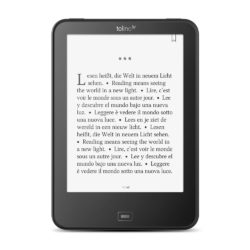 The German ebook consortium Tolino announced its newest ereader on Monday. The Tolino Vision 4HD is almost identical to its predecessor, but it does have a couple features to recommend it.
The German ebook consortium Tolino announced its newest ereader on Monday. The Tolino Vision 4HD is almost identical to its predecessor, but it does have a couple features to recommend it.
The Vision 4HD sports the same 6″ Carta E-ink screen (300 ppi), runs on the same 1GHz Freescale CPU, and has the same waterproofing as its predecessor, but there are a couple subtle improvements which may make this ereader worth getting when it reaches store shelves tomorrow.
Lesen.net reports that the Vision 4HD ships with twice the storage (8GB) and a USB cable which looks like it has a standard plug but will actually work both ways. The new cable is on the right:
Those who just want the cable can find them on Amazon for $5 to $10.
The other significant change to the Vision 4HD concerns its frontlight. Tolino followed Kobo’s lead and upgraded the frontlight with a night-reading mode which filters out the blue light emitted by the frontlight.
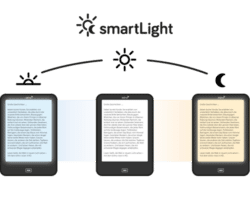 Tolino is calling it "smartLight", and when enabled this feature changes the color of the frontlight so that it looks bluer in the morning and more orange-red in the evening.
Tolino is calling it "smartLight", and when enabled this feature changes the color of the frontlight so that it looks bluer in the morning and more orange-red in the evening.
The Kobo Aura One, on the other hand, goes from white to a red-orange depending on the time of day and on a user’s settings.
And of course the Aura One has an 8″ screen; the Vision HD is the first ereader with a 6″ E-ink screen to add this feature.
You can see it in action in the following video at about 10:33:
Vision 4HD Specs
- CPU: 1GHz
- RAM: 512MB
- Storage: 8GB
- Screen: 300 PPI Carta E-ink Screen
- Frontlight, Capacitive touchscreen
- Connectivity: Wifi
- Weight: 175 grams
- Dimensions: 114 × 163 × 8.1 mm
- Waterproof
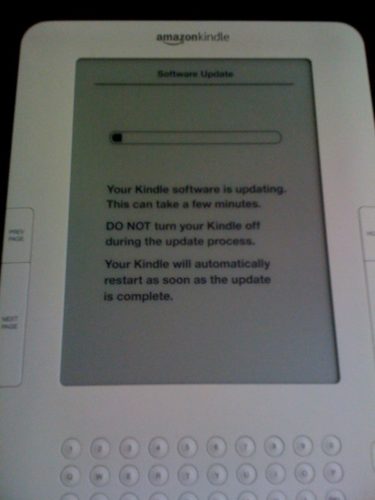 Back in February of this year Amazon informed Kindle owners about a mandatory firmware update for all Kindle models.
Back in February of this year Amazon informed Kindle owners about a mandatory firmware update for all Kindle models.
That notice was accompanied by dire warnings that Kindle owners would lose the ability to download ebooks to their Kindle by the end of March 2016 if they didn’t install the update, but now it appears that the warnings were just a paper tiger.
I’ve just read that Amazon is sending out another round of reminder emails about that update. This is the second set of reminder emails in just over a month, and it makes me wonder just how many Kindle owners have yet to update their device.
The update in question changes a few small but important wireless security settings, so it’s easy to see why Amazon is continuing to remind Kindle owners. What surprises me, however, is that Amazon didn’t follow through and change its security on schedule.
Either Amazon fibbed on the time frame, or they’ve decided that they value customer satisfaction over security.
In any case, have you gotten the email recently?
O O O
If you’re wondering whether the email you got from Amazon was real, here’s the one I got last month:
Hello,
An important software update for your Kindle device "The Digital Reader’s 4th Kindle" is required to continue to download your books and use Kindle services. This update will ensure wireless coverage so you can continue to have the best possible reading experience.
To update your Kindle wirelessly, follow these steps:
1. Turn wireless on by sliding the wireless switch on the back of your device to the "On" position, or by pressing the Menu button from the Home screen and then selecting "Turn Wireless On".
2. Plug your Kindle in to charge during the update.
3. Leave your wireless on and the Kindle plugged in overnight.
While the device is asleep, the software update should download and install automatically. Your device may restart multiple times during the update process. You will receive a final confirmation letter once the update is completed.
While the device is asleep, the software update should download and install automatically. Your device may restart multiple times during the update process. You will receive a final confirmation letter once the update is completed.
Frequently Asked Questions
What if I no longer have one or more of my devices?
If you no longer have or use one of your Kindle devices, deregister it from your account today. First, go to www.amazon.com/mycd and log into your Amazon account. Click on the Your Devices tab and select the Kindle device you want to deregister. Click Deregister.
How can I get help on updating my Kindle devices?
You can contact Customer Service by using the Contact Us option in the left-hand column of our Kindle Support pages at:
Thank you for reading with Kindle, and be sure to turn wireless on regularly to receive all future software updates.
image by Matt Mordfin
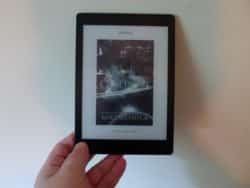 In addition to a night-reading mode, what sets the newly launched Kobo Aura One apart from other ereaders is the way it supports library ebooks.
In addition to a night-reading mode, what sets the newly launched Kobo Aura One apart from other ereaders is the way it supports library ebooks.
The Aura One features close integration with Overdrive, the library ebook vendor bought by Rakuten last spring. There are no first-hand reports yet, and I am still waiting for Kobo and OverDrive to get back to me with answers to my questions, but here’s what we know so far.
- the Aura One is running firmware 3.20.7280
- no other Kobo ereader has this firmware, and it’s not mentioned on their product listings
- the feature only works in US, UK, Canada, NZ, and Australia
The way this is supposed to work is that once you have entered your Overdrive info in the settings menu, you can simply search the Kobo store on the Aura One and the ebooks you see will list their price as well as whether they are available to be checked out of your library.
You can check out an ebook on the Aura One, and you can also place a hold for an ebook. Any borrowed book will indicate how long until the library loan expires. This detail is displayed when you put the Aura One to sleep.
I use the word "supposed" because this feature does not work yet.
My Aura One came with an OD account set up, but I couldn’t find any ebooks to borrow. There’s no way to filter for this option when browsing the Kobo store on the Aura One, and there’s no way to just browse your library’s ebook catalog.
Since I couldn’t find any ebooks, I went into the settings menu, logged out of OverDrive, and tried to enter my account. This didn’t work. The Aura One wouldn’t accept my info, and with good reason.
It turns out that the feature is not yet live. I’ve just been told by Kobo that the software is a demo, "a high-level overview of Library Lending (the feature is not yet live). When the device launches in September, you will be able to add your library card and borrow then."
In other words there’s not much I can say about this feature until Kobo turns it on sometime next month, but I won’t send you away empty handed.
The following four screenshots show you all the info the Aura One has on the is feature. Until we can pry a user manual out of Kobo, this is most of what we know about how this feature will work.
Enjoy.
 B&N’s development of Nook software may have slowed to a crawl since they outsourced support to an Indian company, but it hasn’t completely stopped.
B&N’s development of Nook software may have slowed to a crawl since they outsourced support to an Indian company, but it hasn’t completely stopped.
Barnes & Noble rolled out an update for its app for iPad and iPhone on Wednesday.
The update adds a nighttime reading mode similar to the one which Apple made standard in iOS 9 as well as a new option to download ebooks which are listed for free in the Nook Store. This effectively bypasses Apple’s block on selling ebooks inside an app, but only to a limited degree.
Readers will also find that B&N added support for the enhanced Nook ebook format. These ebooks contain audio and video clips which enhance the story. (If you would like to try one, here’s a Google search with links to free titles.)
Coincidentally, B&N added support for enhanced ebooks to the Nook Android app last March. (Amazon added this feature to the Kindle iOS app in 2010, and to the Kindle Android app in 2011.)
You can find the app in iTunes.
Here’s the changelog:
What’s New in Version 4.6.0
- Now supporting the Enhanced NOOK Book format (embedded video and audio clips)
- Search and download FREE books (including Free Friday books)
- Search for your books using iOS Spotlight search (iOS9 only)
- Find even more related books in product details page
- Serial Reads: Font Size Control
- New Evening Theme (easier on the eyes at night)
- Bug fixes and performance improvements
 Another of those exhortations to read more dead white men and less frivolous modern trash crossed my desk this evening.
Another of those exhortations to read more dead white men and less frivolous modern trash crossed my desk this evening.
Graeme Whiting, the headmaster for The Acorn School (a private school in the UK) thinks children’s minds are being warped by reading modern trash:
Sensationalism is the key for marketing literature in today’s world. Publishers and authors don’t really care who reads what, as long as they achieve high sales figures, and they go to great lengths to create those pictorial covers that hide the sometimes demonic, influential and unacceptable words that may lie within the text. Gone are the classics, and when I asked my wife to write a reading list for the children of my school, many of the books she recommended were hard to find.
…
I stand for the old-fashioned values of traditional literature, classical poetry, Wordsworth, Keats, Shelley, Dickens and Shakespeare, and the great writers who will still be read in future years by those children whose parents adopt a protective attitude towards ensuring that dark, demonic literature, carefully sprinkled with ideas of magic, of control and of ghostly and frightening stories that will cause the children who read them to seek for ever more sensational things to add to those they have already been exposed to. What then of their subconscious minds? What then of the minds of children whose parents couldn’t give the time to look closely at childhood; the sensitive period of the development of every human being? Where will this addiction to unacceptable literature lead?
I want children to read literature that is conducive to their age and leave those mystical and frightening texts for when they can discern reality, and when they have first learned to love beauty. Harry Potter, Lord of the Rings, Game of Thrones, The Hunger Games, and Terry Pratchett, to mention only a few of the modern world’s ‘must-haves’, contain deeply insensitive and addictive material which I am certain encourages difficult behaviour in children; yet they can be bought without a special licence, and can damage the sensitive subconscious brains of young children, many of whom may be added to the current statistics of mentally ill young children. For young adults, this literature, when it can be understood for what it is, is the choice of many!
To put it simply, Whiting wants kids to read serious stuff like A Christmas Carol, Queen Mab, A Midsummer Night’s Dream, The Tempest, and Ode to a Nightingale in place of frivolous titles like Lord of the Rings which cause metal degradation, the fits, and other maladies.
Yeah, that doesn’t make sense to me, either.
I’ve never been one to listen to cultural imperialists like Whiting when they champion a classical education or suggest that anyone who reads outside the accepted canon is not a serious reader.
Sure, I would be more interested in his arguments if he had named at least one writer who is not a dead white male (in this context, Shelley refers to the poet, and not his more famous wife). Just one Maya Angelou, Madeleine L’Engle, Margaret Atwood, Doris Lessig, or Jane Austen – any token female author – would dilute his reading list beyond a monoculture of dead white men.
But as it stands, Whiting is advocating for a reading list made up of writers of a single gender from a single country. His reading list offers students a limited selection of viewpoints which excludes 99% of the world’s population and 99% of its cultures.
And that’s a problem, because without the contrast of other cultures and other viewpoints readers won’t be able to recognize the flaws in the culture of Whiting’s accepted canon.
To name a personal example, if I had only ever read science fiction I wouldn’t have recognized the times when James White, Robert Heinlein, and other SF Greats were jaw-droppingly sexist in their portrayal of female characters (and that’s not counting the authors who left women out entirely).
That is the kind of perspective Whiting wants to deny his students.
I may not be the most widely read person, but I have a problem with that.
And so should you.
P.S. If you would like to read more on this topic, Google "dead white guys". Or, here’s a reading list:
- Against the "Serious Reader" (BookRiot)
- Literature Is Dead (According to Straight, White Guys, At Least) (The Atlantic)
- The Year I Stopped Reading Men (HuffPost)
found via The Telegraph, rebuttal list provided by DiapDealer
image by Jason M Parrish
 There are apps that will let you read office docs or ebooks on your smartwatch, or browse news headlines, but when it comes to PDFs few apps are as useful as the PDF Reader for Android Wear which just crossed my desk today.
There are apps that will let you read office docs or ebooks on your smartwatch, or browse news headlines, but when it comes to PDFs few apps are as useful as the PDF Reader for Android Wear which just crossed my desk today.
This app lets you read, scroll around, or zoom in/out on any DRM-free PDF. Reflow is not supported, but the app does have page turn buttons and a night mode. According to the listing in Google play, additional options are available after a long press on a screen, including a list of files transferred to the app.
Text-to-speech, annotation features like notes and highlights, and the option to save an edited PDF are in the works (just kidding).
To open a PDF in the app, simply browse the file manager on your smartphone, select a PDF, and choose the option to open it in "PDF Reader". Within a moment, it will be transferred to your Wear smartwatch. (Transferring files as large as 50 MB will take few minutes.)
Thanks to this app, you now have a new option for leaving your smartphone in your pocket and getting work done on the inch and a half wide screen residing on the back of your wrist.
And what could be better than that?
You can find the app in Google Play.


